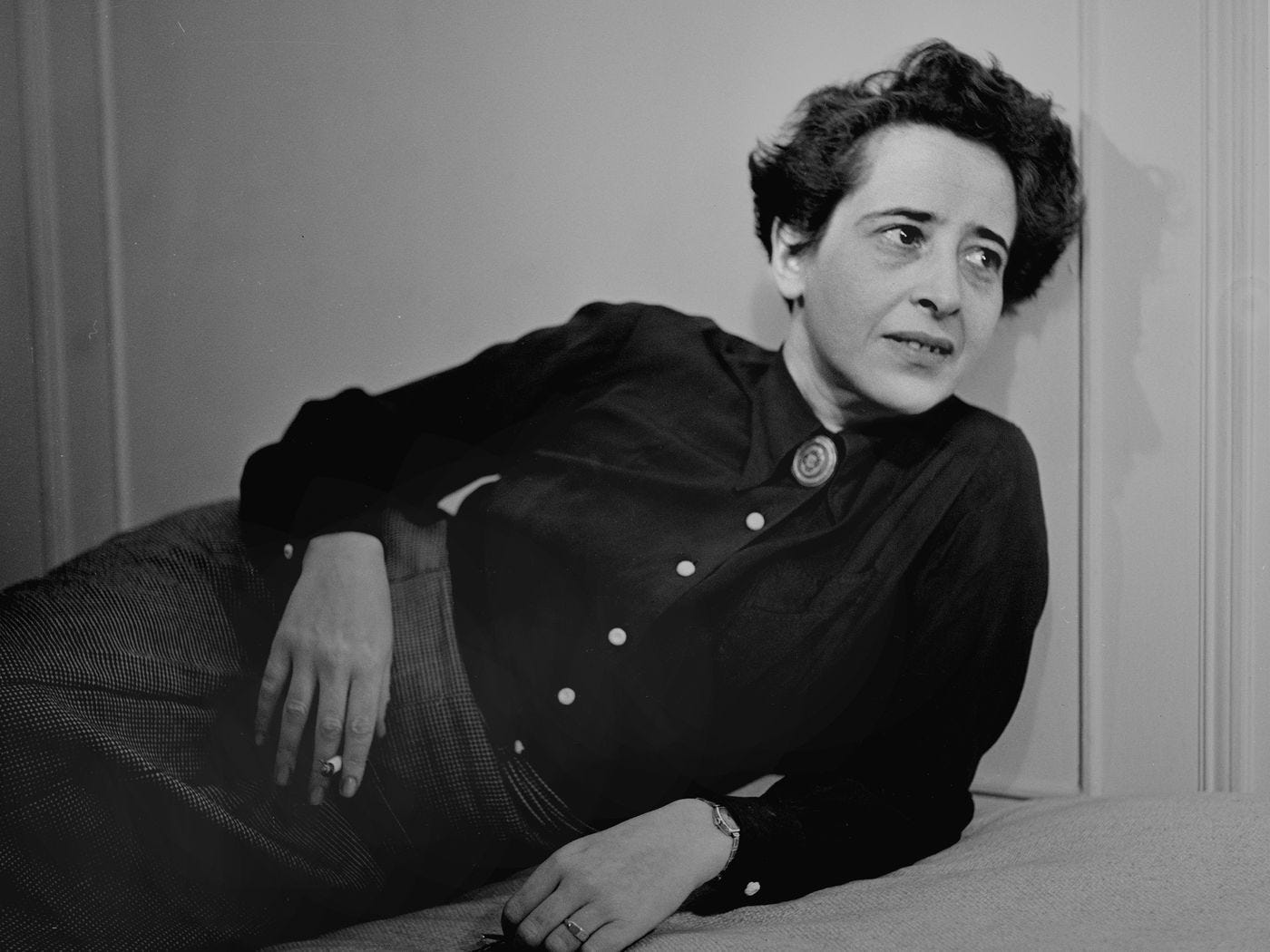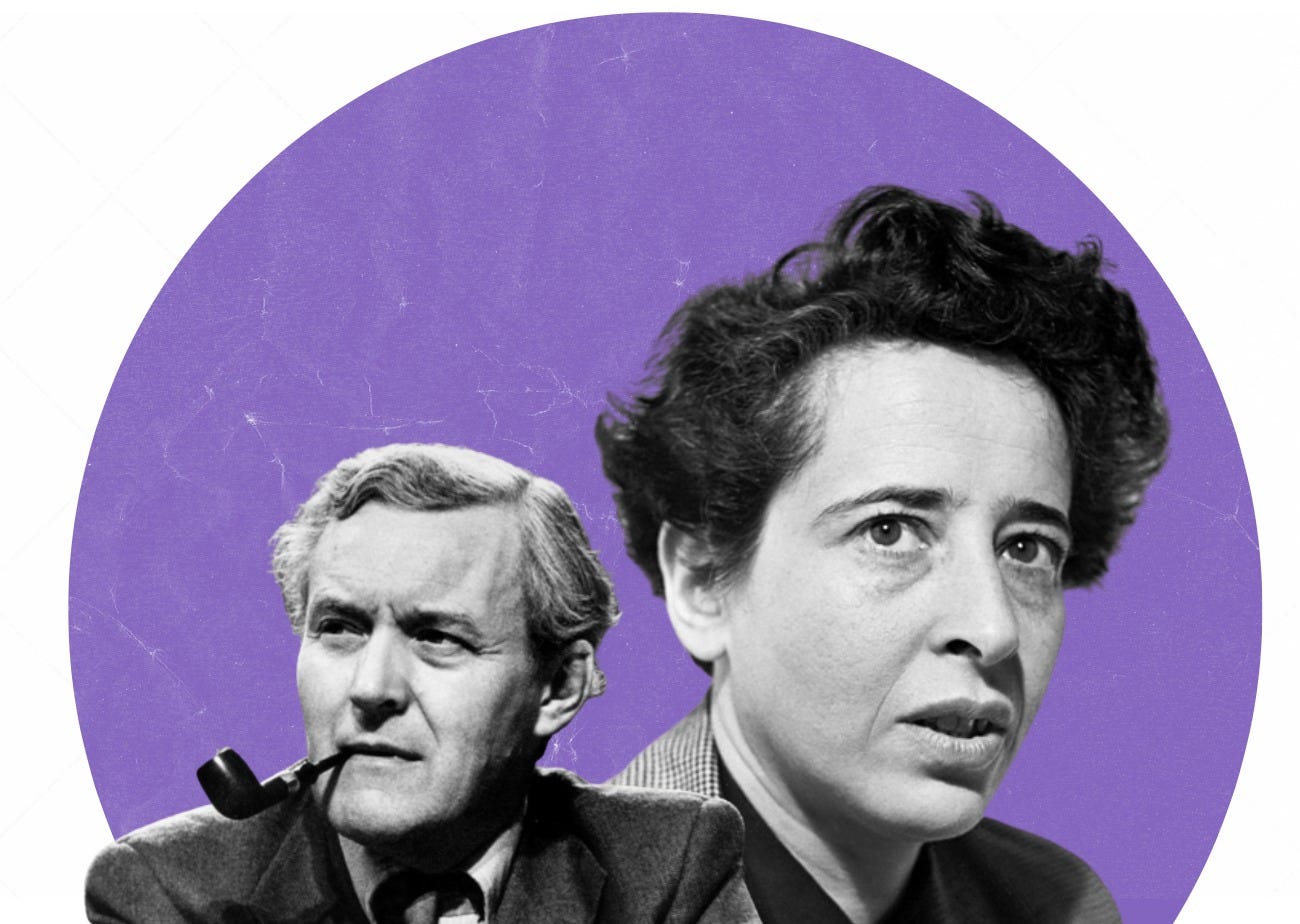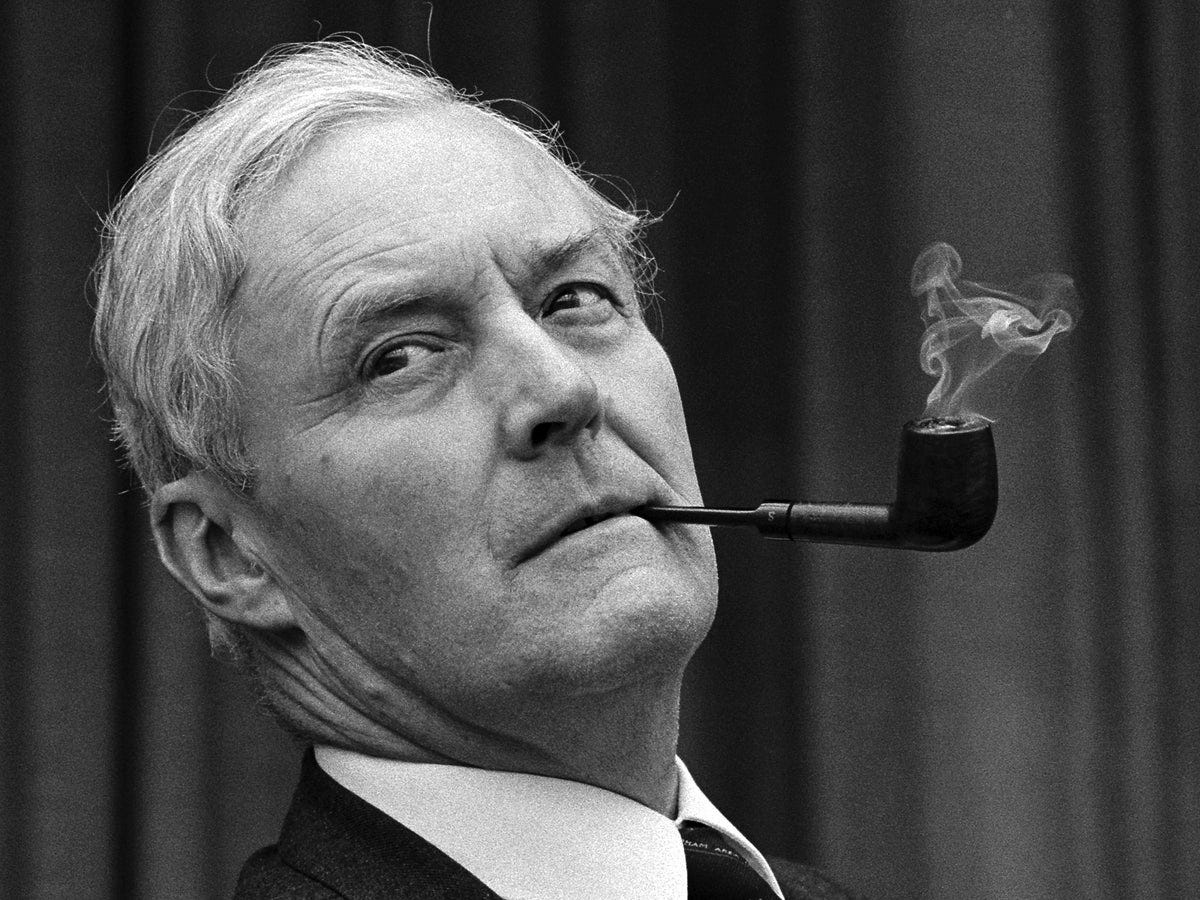Ramblings #1: Updates, Arendt and Party Membership Votes
A new informal series with updates and thoughts
Introducing Ramblings
Hello everyone, this is Tom here. I’ve decided to start a new part of the blog which will act as a more informal channel to talk to you; the readers, and update you on the progress of The Political Inquiry. As you can see, it will be called Ramblings and does what it says: rambles (a bit).
This series will also include incomplete political thoughts which are interesting but don’t necessarily fit neatly into a piece – or may inspire a piece of itself. It’s also a space to promote or recommend any other works / books on politics, and just chat generally.
Please also feel free to comment and respond to Ramblings, I’m really interested in your thoughts on the substack; what you like / dislike, thoughts on pieces or ideas for new ones. Use a more informal forum to challenge / discuss / interact (if you wish to do so).
Also please follow / message us on:
Twitter: @thepolinquiry
Instagram: @thepoliticalinquiry
Email: thepolinquiry@gmail.com
As always, sharing the substack with friends / on social media or talking about it to others interested in politics really helps build our readership. It goes a long way, so just one click or recommendation is greatly appreciated!
Liking posts is also a great way to show appreciation.
Thank you again to everyone.
Introducing the team
You have probably noticed a few different names on the blog. I’ve recruited some great writers, all very knowledgeable in politics. They’ll bring a better mix of thoughts to The Political Inquiry. But, they’ll also help me with the constant churn of UK politics as I’m especially busy with work on the new Johnson at 10 book in Sir Anthony Seldon’s series of political histories (out in Spring). With this emboldened team, TPI will be able to cover contemporary politics while retaining insightful deep-dive series. Journalistic style with academic rigour. Some, more journalistic, others more academic. All straight into your inbox, streamlined and boldly independent.
Navigate to the about page to read about each of our members. Here is a quick summary:
Tom (me) - Editor
Latest piece: State of Play #10: Unparalleled Failure
Currently working on: Power and Elections #2 + #3, (SOP#11 will be released with the new budget mid November)
Kit - Contributor
Latest piece: Labour’s Strategy #2: Resurgence
Currently working on: Labour’s Strategy #3
Dylan - Head of Design / Contributor
Currently working on: Can Sunak prevent the Tory party from splitting?
(And all of The Political Inquiry’s brilliant designs)
Ed - Contributor
Latest piece: Boring is Back: Sunak’s cabinet analysed
Currently working on: The declining behaviour of the political class
We are still looking for more new writers, so if you have any recommendations please email. That's the housekeeping done, now for some rambling thoughts to end this piece.
Hannah Arendt on ideology
Hannah Arendt, a legendary political theorist, has written countless classics. Her ideas mostly centralise around the power of the nation-state, nationalism, trends / ideas and power politics. They are fascinating insights in politics and history, and ones which I heartily recommend.
Her timeless classic, The Origins of Totalitarianism, is her ground zero for the workings of politics. Originally written in 1951, Arendt explores politics and power through the paradigm of Totalitarianism, its rise in Europe and its worst moment: the final solution. Really, however, it's an excuse for Arendt to analyse and discuss everything in politics and humans: what drives people, parties, nations and the world. Essentially ending in the core question: how could someone willingly become a functionary of a death camp?
However, one relevant and interesting area Arendt tackles is the power of ideology. She contests that in the last 100 years, the two enduring elements of ideological thought are race and class.
But why race or class? Because an ideology's success is based on its popularity. And to be popular, an ideology must be visible, relatable and therefore put into practice. One may have developed the best ideology, but it will go nowhere sitting on an old academic’s bookshelf collecting dust. As Arendt continues (p.207):
“The tremendous power of persuasion inherent in the main ideologies of our time is not accidental. Persuasion is not possible without appeal to either experiences or desires, in other words to immediate political needs”
Class and race, to varying extents, affects every group in a myriad of ways. They are tangible, extreme and to a certain extent primitive. Money: you either have it or you do not. Race: you are either a certain race (or mix of) or you are not. And these dividers are never really transcended. Someone always has some feeling towards one, or both. Negative or positive. Compassionate or selfish.
Arendt also contends that “Every full-fledged ideology has been created, continued and improved as a political weapon not as a theoretical doctrine” (p.208). I.E, only in practice do ideologies really shape into being. Therefore, the politics of race or class are the two most powerful weapons in the ideological weapon cabinet. They appeal to “experiences or desires”, sometimes the very worst feelings in humans, sometimes the very best..

For instance: the idea of race and nationality being linked was a key issue in the 2016 Brexit referendum. Yes, Dominic Cummings ran a reasonably immigration-lite campaign on the surface, however underneath (through language and tone – the subtext) it played on the ideas of race and immigration. Take back control is a perfect example. Not explicitly racist – in fact none of Vote Leave was – but certainly playing on deep undertones that resonates in many voters. The Turkey poster is another applicable example.
The same was mirrored through class in Corbyn’s remarkable comeback in the 2017 General Election, playing the card of left-wing populist economics, challenging austerity and managing to avoid electoral destruction (while garnering 40%+ of the vote). Class was key: with the message being don’t pick on those in the lower classes of society who had experienced 7 years of austerity.
Both campaigns were, as Arendt says, “political weapons” and hardly just ideological theories. However, the issue with both is that while they were successful political weapons, the long-term practice of either vision has been, well, not great.
As Arendt later goes on to argue, neither were the other movements of Nazism or Bolshevism. Popular and politically powerful, yes. Good for long-term government? Stable? Moral? No. Both brought death and destruction to Europe, with humanity on the brink of collapse.
Of course, message me if you disagree. And do read Arendt, a somewhat forgotten gem.
The mess of party membership votes
Ever since Tony Benn’s experiment in the1980s of giving party members a vote in leadership elections, UK politics has not been the same. As with many things in politics, you only begin to notice the failures of an idea or policy when they go wrong. Usually horribly wrong. Negativity and failure create anger and reaction, especially when it involves taxpayers money or the very future of our country. It’s time, as Dominic Sandbrook and Tom Holland discuss, to take another look at party membership votes.
Kinnock was the first victor in the novel system, however while he won two labour leadership votes he also lost two general elections. Not great. Next was John Smith, a good leader but with unknown qualities due to his tragic death. Then Blair, a positive after becoming electorally most successful leader for Labour winning three elections. Next, Brown – winning without a membership vote. A good PM, a poor vote winner.
In Labour’s age of opposition Ed Miliband beat his brother David by 0.6% – again a negative, with Miliband losing the ‘unloseable’ 2015 election. Then Corbyn – winning two leadership votes, but lost the 2017 election and pushed the party to extinction levels in the 2019 defeat. Lastly Starmer, who is yet to be proven as either a winner or loser, but circumstances and electoral cycles certainly favour him.
Onto the Tories, and after the success of Blair, Hague was inspired to bring the Tories into the new age by giving the membership a vote on leaders. However, after Hague’s 2001 election battering, Ian Duncan-Smith was elected, another disaster who didn’t even make it to the 2005 election. Michael Howard wasn’t much better, losing in 2005. Next, Cameron – a reasonably good leader for the Tories, half winning 2010 and fully winning 2015 (although with a referendum fudge). Next, Theresa May, like Brown winning without a membership vote. Not a good PM. Boris Johnson, again a membership victory, bringing short term gain (2019) for long term pain (the death of Tory government). Finally Truss, who is probably the best argument against membership votes. An Unparalleled failure.
Sunak was the possible first of many future leaders to be elected by his parliamentary party, with explicit attempts to stop a membership vote. As the Tories, and Labour, know: the members can no longer be trusted.
For both country and party, there have been more failures than successes at the hands of the party vote. Party membership for both (historically in the tens of millions) is now a mere 100k-500k, meaning a select ideologically charged and unrepresentative few picking a new leader or PM.
There is also a democratic gap. It will never be perfect to elect leaders without elections – no one really believes that every time a leader falls an election should be called. However, there is an argument that the people’s representatives (MPs) – which we all DO have a role in electing – should be regiven the right to elect a leader. This is reasonably more democratic, and would certainly deliver leaders with greater support in parliament and thus stronger, less rebellious, government.
Is it time to stop the mess of factionalism and division caused by both main party memberships?
Possibly. Maybe looking at the mechanism is futile. Maybe it’s our political class which is in dire need of rejuvenation and renovation.






